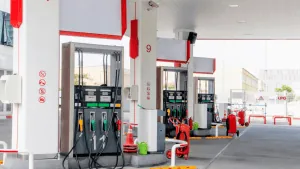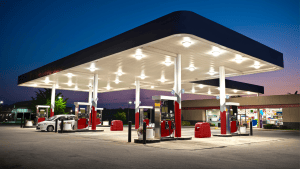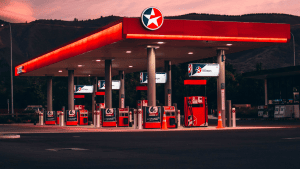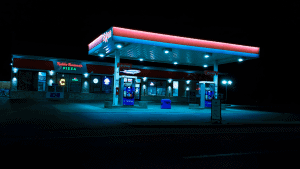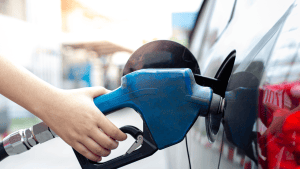Contents
How to get better gas mileage: 14 Best Ways to Improve Gas Mileage
Want to know how to get better gas mileage?
Are you tired of spending too much money on gas?
Do you want to reduce your carbon footprint and help the environment?
If so, you’re in luck! In this blog post, we’ll some effective ways on how to get better gas mileage.
Improving your car’s fuel economy not only saves you money but also helps reduce your impact on the environment.
From regular maintenance to simple changes in driving habits, we’ll provide you with tips and tricks to help you save money at the pump and reduce your carbon footprint.
Whether you’re a daily commuter or a long-distance traveler, these tips will help you get the most out of your gas tank and reduce your impact on the environment.
How to get better gas mileage
How to get better gas mileage?
Improving your car’s gas mileage is a great way to save money and reduce your carbon footprint.
There are many ways to get better gas mileage, including getting a tune-up, avoiding speeding, using fuel additives, watching your RPMs, keeping moving, using cruise control, checking your tire pressure, accelerating slowly, avoiding idling and planning ahead.
By following these tips, you can improve your car’s fuel economy and save money at the pump.
Regular maintenance, such as oil changes and air filter replacements, is also important to keep your car running efficiently and using less gas.
With a few simple changes to your driving habits and car maintenance routine, you can get better gas mileage and reduce your impact on the environment.
Improving your car’s gas mileage not only saves you money but also helps reduce your carbon footprint.
By following the tips mentioned above, you can improve your car’s fuel economy and reduce the amount of fuel your car consumes.
Regular maintenance, such as oil changes and air filter replacements, is crucial to keep your car running efficiently and using less gas.
A well-maintained car can help you get better gas mileage and save money at the pump.
Getting a tune-up is one of the most effective ways to improve your car’s gas mileage.
A tune-up can help ensure that your car is running smoothly and using less gas.
During a tune-up, a mechanic will check your car’s spark plugs, fuel injectors, and other components to ensure that they are working correctly.
This can help improve your car’s fuel economy and reduce the amount of fuel your car consumes.
Avoiding speeding is another effective way to get better gas mileage.
The faster you drive, the more fuel your car consumes.
By slowing down and driving at a consistent speed, you can improve your car’s fuel economy and save money at the pump.
Using cruise control can help you maintain a consistent speed and improve your car’s fuel economy, especially on long trips.
Using fuel additives is another way to improve your car’s fuel economy.
Fuel additives can help clean your engine and reduce friction, which can help improve your car’s gas mileage.
Look for fuel additives that contain ingredients like PEA (polyether amine) and PIB (polyisobutylene) to help keep your engine clean and running smoothly.
Checking your tire pressure regularly is another way to improve your car’s fuel economy.
Underinflated tires can reduce your car’s fuel economy by up to 3%.
By keeping your tires properly inflated, you can improve your car’s fuel economy and save money at the pump.
In addition to these tips, accelerating slowly, avoiding idling, and planning ahead can also help you get better gas mileage.
By making a few simple changes to your driving habits and car maintenance routine, you can improve your car’s fuel economy and reduce your impact on the environment.
Synthetic Motorcycle Oil vs. Harley Davidson Motor Oil
14 Best Ways to Improve Gas Mileage
We’ve discussed how to get better gas mileage.
So, are you tired of spending too much money on gas?
Do you want to improve your car’s fuel economy?
If so, you’re in luck! In this blog post, we’ll share with you the 14 best ways to improve gas mileage and save money at the pump.
1. Get a tune-up: Regular maintenance is essential to keep your car running efficiently and using less gas.
Dirty oil, clogged air filters, and plugged fuel filters can reduce your car’s fuel economy.
By getting a tune-up, you can ensure that your car is running smoothly and using less gas.
2. Don’t speed: The faster you drive, the more fuel your car consumes.
According to the U.S. Department of Energy, every 5 mph you drive over 50 mph is like paying an additional $0.18 per gallon for gas.
So, slow down and save money!
3. Use fuel additives: Fuel additives can help improve your car’s fuel economy by cleaning the fuel system and reducing engine deposits.
Look for additives that contain detergents and lubricants to help keep your engine running smoothly.
4. Watch your RPMs: Revving your engine can waste fuel and decrease your car’s gas mileage.
Try to keep your RPMs below 3,000 to improve your car’s fuel economy.
5. Keep moving: Idling your car wastes fuel and decreases your car’s gas mileage.
If you’re going to be stopped for more than 30 seconds, turn off your engine to save gas.
6. Use cruise control: Using cruise control can help improve your car’s fuel economy by maintaining a consistent speed and reducing the need for sudden acceleration and braking.
7. Check your tire pressure: Underinflated tires can decrease your car’s gas mileage by up to 3%.
Check your tire pressure regularly and inflate your tires to the recommended pressure to improve your car’s fuel economy.
8. Improve engine efficiency: Upgrading your car’s engine components, such as the air intake system, exhaust system, and spark plugs, can help improve your car’s fuel economy and engine efficiency.
You can also consider using synthetic oil, which can reduce engine friction and improve fuel economy.
9. Avoid carrying excess weight: Carrying unnecessary weight in your car, such as heavy luggage or equipment, can decrease your car’s gas mileage.
Remove any unnecessary items from your car to improve your car’s fuel economy.
10. Use fuel-efficient products: There are many products available that can help improve your car’s fuel economy, such as fuel-efficient tires, aerodynamic accessories, and fuel additives.
Look for products that are specifically designed to improve gas mileage.
11. Plan ahead: Planning ahead can help you save gas and improve your car’s fuel economy.
This means combining errands, carpooling, and using public transportation when possible.
You can also use GPS navigation to find the most fuel-efficient routes to your destination.
12. Accelerate slowly: Accelerating slowly can help you use less gas and improve your car’s fuel economy.
This means avoiding jackrabbit starts and gradually increasing your speed.
13. Avoid idling: Idling your car wastes gas and reduces your car’s fuel economy.
If you’re going to be stopped for more than 30 seconds, turn off your engine to save gas.
14. Use the right fuel: Using the right fuel for your car can help improve your car’s fuel economy.
Check your car’s owner’s manual to see what type of fuel is recommended for your car.
Best Oil For Small Engines: Amsoil Synthetic OilAMSOIL
How to increase the fuel efficiency of petrol car
How to get better gas mileage for a petrol car?
If you’re looking to increase the fuel efficiency of your petrol car, there are several things you can do to improve your car’s gas mileage. Here are some tips on how to increase fuel efficiency of petrol car:
1. Get a tune-up
Regular maintenance, such as oil changes and air filter replacements, can help improve your car’s gas mileage. A tune-up can also help ensure that your car is running smoothly and using less gas.
2. Check your tire pressure
Underinflated tires can reduce your car’s fuel economy by up to 3%. Be sure to check your tire pressure regularly and inflate your tires to the recommended PSI (pounds per square inch).
3. Avoid speeding
The faster you drive, the more fuel your car consumes. By slowing down and driving at a consistent speed, you can improve your car’s fuel economy and save money at the pump.
4. Use cruise control
Using cruise control can help you maintain a consistent speed and improve your car’s fuel economy. This is especially true on long trips where you’re driving on the highway.
5. Accelerate slowly
Accelerating slowly can help you use less gas and improve your car’s fuel economy. This means avoiding jackrabbit starts and gradually increasing your speed.
6. Avoid idling
Idling your car wastes gas and reduces your car’s fuel economy. If you’re going to be stopped for more than 30 seconds, turn off your engine to save gas.
7. Use the right fuel
Using the right fuel for your car can help improve your car’s fuel economy. Check your car’s owner’s manual to see what type of fuel is recommended for your car.
8. Improve engine efficiency
Upgrading your car’s engine components, such as the air intake system, exhaust system, and spark plugs, can help improve your car’s fuel economy and engine efficiency.
You can also consider using synthetic oil, which can reduce engine friction and improve fuel economy.
These are some best tips about how to get better gas mileage.
By following these tips, you can increase the fuel efficiency of your petrol car and save money at the pump.
Regular maintenance and simple changes in driving habits can go a long way in improving your car’s fuel economy.
Does gas mileage improve over time?
Gas mileage may improve slightly over time as your car’s engine breaks in, but regular maintenance and following the best practices for improving gas mileage are the best ways to improve your car’s fuel economy.
As your car’s engine parts wear down over time, it can become less efficient and use more fuel.
This is why regular maintenance, such as oil changes and air filter replacements, is crucial to keep your car running efficiently and using less gas.
By following the best practices for improving gas mileage, you can help ensure that your car is running at its best and using fuel efficiently.
Conclusion
Improving your car’s gas mileage is easy and can save you a lot of money in the long run.
By following these 14 best ways how to get better gas mileage, you can increase your car’s fuel economy and reduce your carbon footprint.
Increasing the fuel efficiency of your petrol car is a great way to save money and reduce your carbon footprint.
By following the tips mentioned above, such as getting a tune-up, checking your tire pressure, avoiding speeding, using cruise control, accelerating slowly, avoiding idling, using the right fuel, and improving engine efficiency, you can improve your car’s fuel economy and save money at the pump.
Regular maintenance is also crucial to keep your car running efficiently and using less gas.
By making a few simple changes to your driving habits and car maintenance routine, you can increase the fuel efficiency of your petrol car and reduce your impact on the environment.
Q: How can I increase my gas mileage (how to get better gas mileage)? A: You can increase your gas mileage by getting a tune-up, avoiding speeding, using fuel additives, watching your RPMs, keeping moving, using cruise control, checking your tire pressure, improving engine efficiency, avoiding carrying excess weight, using fuel-efficient products, planning ahead, accelerating slowly, avoiding idling, and using the right fuel. Q: What trick gives the best gas mileage? A: The best trick to improve gas mileage is to avoid speeding and maintain a consistent speed using cruise control. You can also improve your car's fuel economy by getting a tune-up, using fuel additives, checking your tire pressure, and upgrading your car's engine components. Q: How can I increase my gas mileage by 70 percent? A: It's not possible to increase your gas mileage by 70 percent. However, by following the 14 best ways to improve gas mileage, you can increase your car's fuel economy by up to 30 percent. Q: What causes really bad gas mileage? A: Dirty oil, clogged air filters, plugged fuel filters, speeding, excessive idling, carrying excess weight, and driving with underinflated tires can all cause bad gas mileage. By addressing these issues and following the 14 best ways to improve gas mileage, you can improve your car's fuel economy and save money at the pump. Q: How to improve engine efficiency and fuel economy? A: You can improve engine efficiency and fuel economy by upgrading your car's engine components, such as the air intake system, exhaust system, and spark plugs. You can also consider using synthetic oil, which can reduce engine friction and improve fuel economy. Q: What kills gas mileage? A: Speeding, excessive idling, carrying excess weight, driving with underinflated tires, and poor maintenance can all kill gas mileage. By addressing these issues and following the 14 best ways to improve gas mileage, you can improve your car's fuel economy and save money at the pump. Q: How to restore fuel economy? A: You can restore fuel economy by getting a tune-up, using fuel additives, checking your tire pressure, and upgrading your car's engine components. By following the 14 best ways to improve gas mileage, you can improve your car's fuel economy and save money at the pump. Q: Improve gas mileage products? A: There are many products available that can help improve gas mileage, such as fuel-efficient tires, aerodynamic accessories, and fuel additives. Look for products that are specifically designed to improve gas mileage and follow the manufacturer's instructions for the best results. Q: How to increase the fuel efficiency of petrol cars? A: You can increase the fuel efficiency of a petrol car by following the 14 best ways to improve gas mileage, such as getting a tune-up, avoiding speeding, using fuel additives, watching your RPMs, keeping moving, using cruise control, checking your tire pressure, improving engine efficiency, avoiding carrying excess weight, using fuel-efficient products, planning ahead, accelerating slowly, avoiding idling, and using the right fuel. Q: Increase fuel efficiency meaning? A: Increasing fuel efficiency means improving your car's gas mileage and reducing the amount of fuel your car consumes. By following the 14 best ways to improve gas mileage, you can increase your car's fuel economy and save money at the pump. Q: Does gas mileage improve over time? A: Gas mileage may improve slightly over time as your car's engine breaks in, but regular maintenance and following the 14 best ways to improve gas mileage are the best ways to improve your car's fuel economy. Q: Truck mods to improve gas mileage? A: Upgrading your truck's engine components, such as the air intake system, exhaust system, and spark plugs, can help improve your truck's gas mileage. Additionally, using aerodynamic accessories, such as a tonneau cover or bed cap, can help reduce wind resistance and improve your truck's fuel economy. By following the 14 best ways to improve gas mileage, you can improve your truck's fuel economy and save money at the pump. Q: How can I increase my gas mileage? A: You can increase your gas mileage by getting a tune-up, checking your tire pressure, avoiding speeding, using cruise control, accelerating slowly, avoiding idling, using the right fuel, and improving engine efficiency. Q: What trick gives the best gas mileage? A: The best trick to improve gas mileage is to drive at a consistent speed, avoid sudden acceleration or braking, and maintain your car regularly. Q: How can I increase my gas mileage by 70 percent? A: It is not possible to increase your gas mileage by 70 percent. However, following the best practices for improving gas mileage can help you save money at the pump and reduce your carbon footprint. Q: What causes really bad gas mileage? A: Several factors can cause bad gas mileage, including poor maintenance, driving habits, traffic conditions, and environmental factors. Q: What Are the Best Ways to Increase Gas Mileage? A: The best ways to increase gas mileage include getting a tune-up, checking your tire pressure, avoiding speeding, using cruise control, accelerating slowly, avoiding idling, using the right fuel, and improving engine efficiency. Q: What Causes Poor Gas Mileage? A: Poor gas mileage can be caused by several factors, including poor maintenance, driving habits, traffic conditions, and environmental factors.
